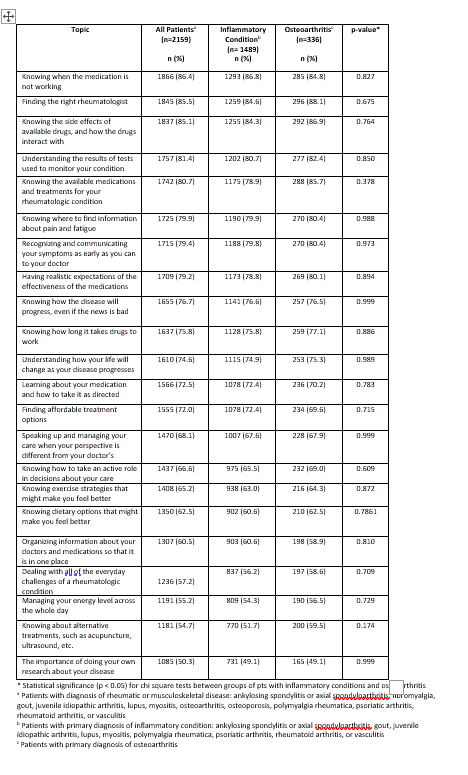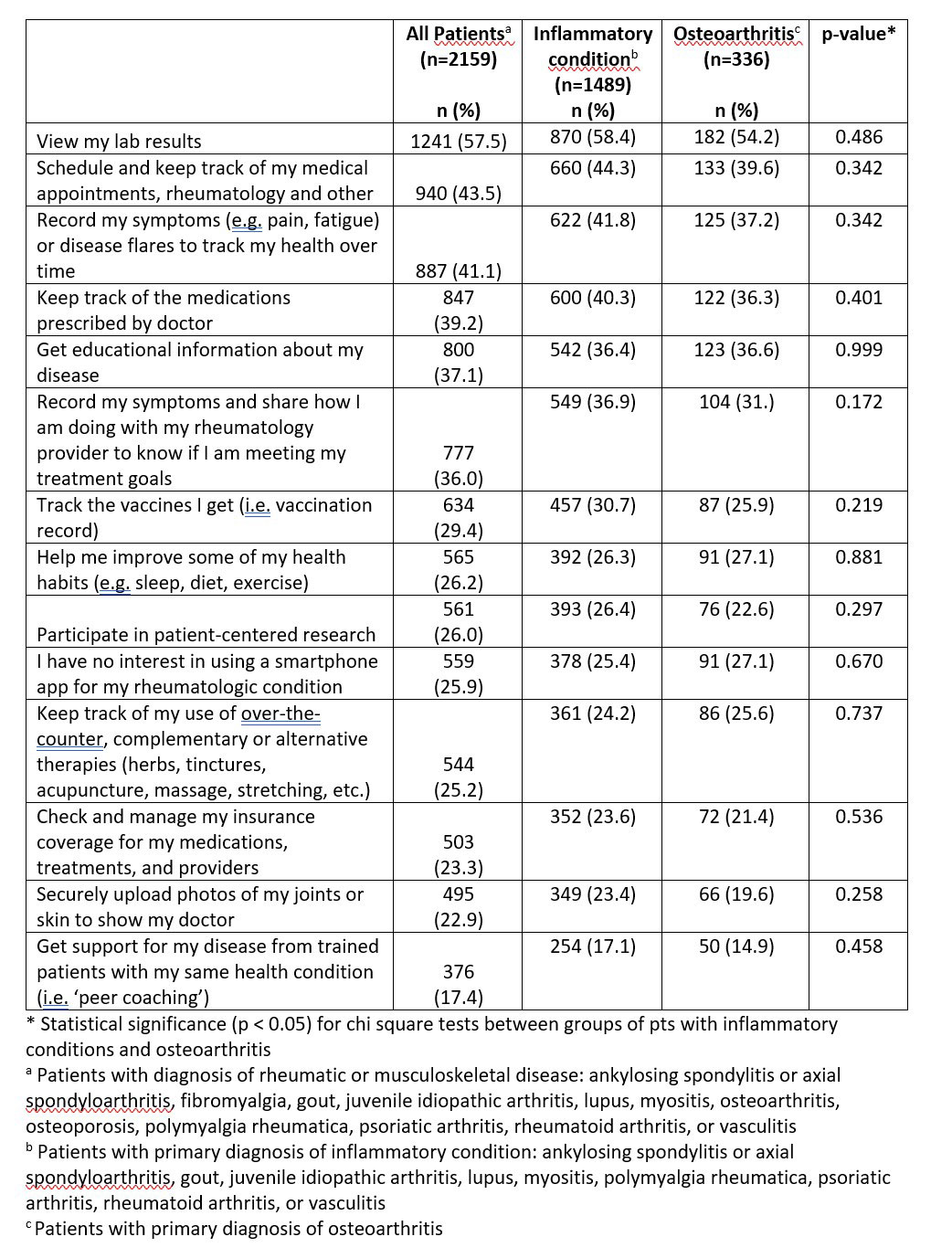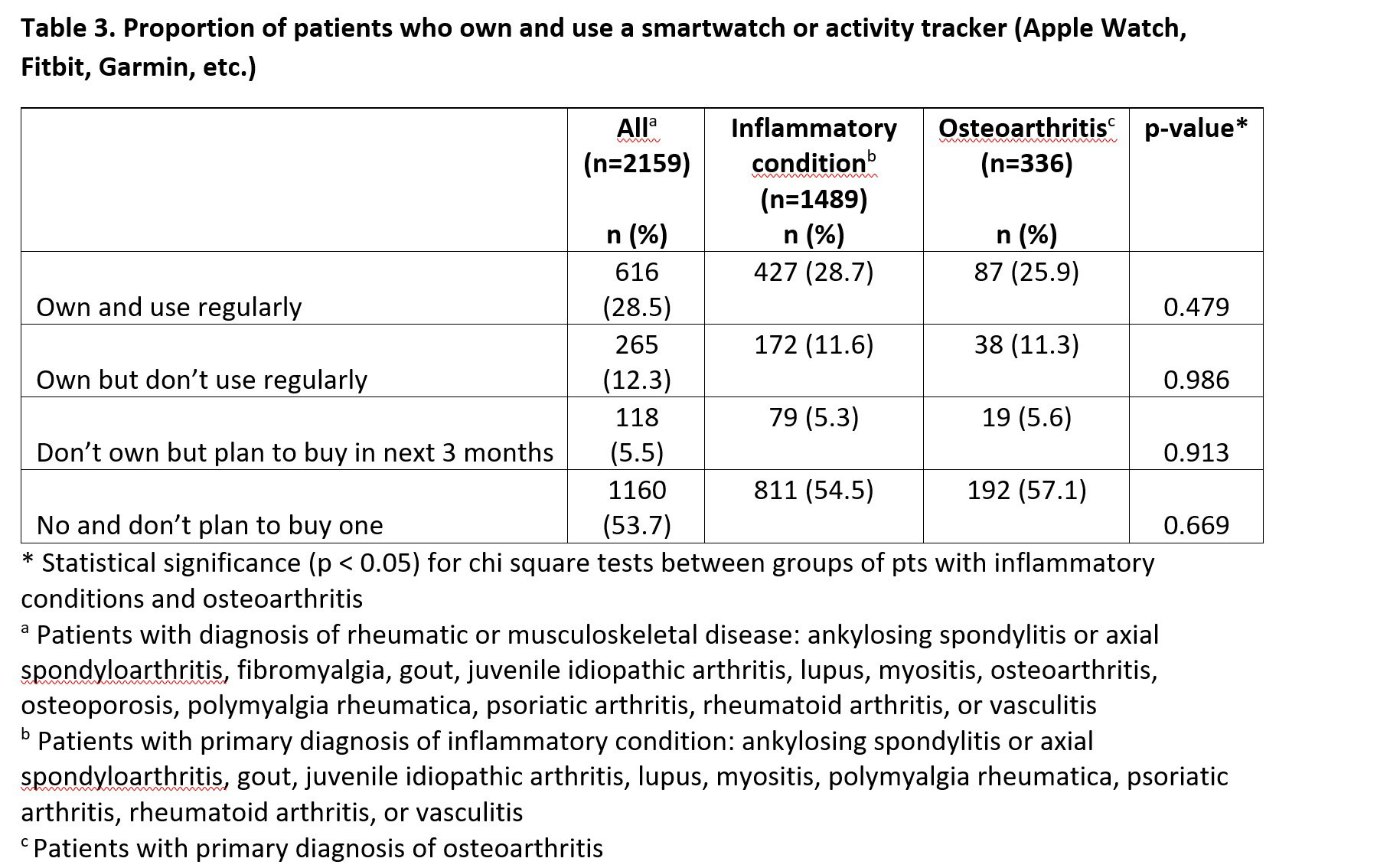Session Information
Session Type: Poster Session C
Session Time: 1:00PM-3:00PM
Background/Purpose: Generating information that people living with a rheumatic and musculoskeletal disease (RMD) find useful requires identifying and understanding the educational needs and interests directly expressed from people living with RMD. We sought to identify (a) what types of information US adults with RMD perceive as most important to know about their disease, and (b) whether and what functions patients would use in a RMD-specific smartphone app.
Methods: Using nominal group technique, focus groups of participants (pts) with RMD generated sets of rank-order educational items which were then aggregated across groups into themes. Based on nominal group results, a survey with the final items was administered online, along with a question about desired functions of a smartphone app for RMD, to patients within the U.S. community-based Bendcare/AARA rheumatology practice network during May 2022. Descriptive statistics and chi square tests between groups of pts with inflammatory conditions and osteoarthritis were calculated.
Results: Six focus groups (n=47) yielded 28 unique items for the online survey of educational and app function priorities. To date, a total of 2,159 pts completed the survey, of whom 78.3% were female, 81.2% white, mean age of 64.2 (SD 12.0) years. Rheumatoid arthritis (38.8%), osteoarthritis (15.6%), and psoriatic arthritis (13.1%) were the most common RMDs with 16.2 (SD 12.1) mean years since diagnosis. Five of the ten items that > 75% of pts considered extremely important concerned medication options and expectations (Table 1); there was no statistically significant difference between the proportion of pts with inflammatory conditions vs osteoarthritis who rated items as extremely important. The only app function that a majority of pts considered useful was the ability to view their lab results (57.5%) (Table 2). Other top functions pts listed as useful included scheduling/keeping track of medical appointments or medications and recording symptoms or flares. A quarter (25.9%) overall indicated no interest in using a smartphone app for their rheumatologic condition. More than half (53.7%) of pts do not own, nor do they plan to get, a smartwatch or activity tracker.
Conclusion: People with RMD prioritized information about medications and monitoring, providing guidance for the development of educational tools. Availability of lab results was considered an important component of a smartphone app for most patients; appointment, medication, and symptom tracking were also important features for a sizeable minority.
To cite this abstract in AMA style:
Nowell W, Gavigan K, Garza K, Ogdie A, George M, Walsh J, Danila M, Venkatachalam S, Stradford L, Rivera E, Curtis J. What Education Topics and Smartphone App Functions Do Rheumatology Patients Consider Important? Survey of Patients in a Community-Based Practice Network [abstract]. Arthritis Rheumatol. 2022; 74 (suppl 9). https://acrabstracts.org/abstract/what-education-topics-and-smartphone-app-functions-do-rheumatology-patients-consider-important-survey-of-patients-in-a-community-based-practice-network/. Accessed .« Back to ACR Convergence 2022
ACR Meeting Abstracts - https://acrabstracts.org/abstract/what-education-topics-and-smartphone-app-functions-do-rheumatology-patients-consider-important-survey-of-patients-in-a-community-based-practice-network/



